Co-Directors

Dr. Donna Strickland
Professor, Department of Physics and Astronomy, Faculty of Science
Donna Strickland is a professor in the Department of Physics and Astronomy at the University of Waterloo and is one of the recipients of the Nobel Prize in Physics 2018 for developing chirped pulse amplification with Gérard Mourou, her PhD supervisor at the time. They published this Nobel-winning research in 1985 when Strickland was a PhD student at the University of Rochester.
Strickland earned a B.Eng. from McMaster University and a PhD in optics from the University of Rochester. Strickland was a research associate at the National Research Council Canada, a physicist at Lawrence Livermore National Laboratory and a member of technical staff at Princeton University. In 1997, she joined the University of Waterloo, where her ultrafast laser group develops high-intensity laser systems for nonlinear optics investigations. She was named a 2021 Hagler Fellow of Texas A&M University and sits on the Growth Technology Advisory Board of Applied Materials.
Strickland served as the president of the Optica (formerly OSA) in 2013 and is a fellow of Optica, SPIE, the Royal Society of Canada and the Royal Society. She is an honorary fellow of the Canadian Academy of Engineering and the Institute of Physics, an international member of the US National Academy of Science and member of the Pontifical Academy of Science. Strickland was named a Companion of the Order of Canada.
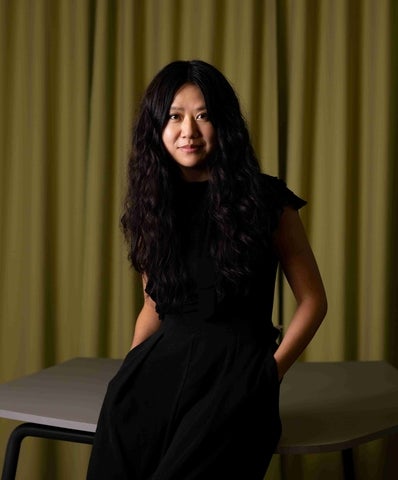
Dr. Lai-Tze Fan
Canada Research Chair in Technology and Social Change, Sociology and Legal Studies, Faculty of Arts
Dr. Lai-Tze Fan seeks to intervene in biased technological design and to heighten technological literacy, with her CRC research focused on artificial intelligence (AI). She is the Director of the U&AI Lab at UW, which uses research-creation methods for enhanced EDI (equity, diversity, inclusion) outcomes in AI design. Fan's research expertise is grounded in Communications, Media Studies, English Literature, Cultural Studies, and Critical Design, as well as Science and Technology studies. She was previously an Assistant Professor at Lingnan University in Hong Kong, a Postdoctoral Fellow at Concordia University in Montréal, and a visiting scholar at the University of Mainz in Germany. She also holds a visiting Associate Professor II position at the University of Bergen, Norway. Fan has collaborated with scholars worldwide, including at MIT, Georgia Tech, and UW’s Institute for Quantum Computing; for this last collaboration, she was the PI for a project that uses VR storytelling to communicate quantum mechanics fundamentals and quantum-assisted machine learning.
Staff Members
Mary Culham
TRuST Research Project Coordinator
Mary Culham completed her BBA at Wilfrid Laurier University and is the Research Project Coordinator for TRuST. She worked for Albany Capital Consulting in London, England and later joined the Ontario Teachers’ Pension Plan as a Senior Investment Services Specialist in Toronto. In 2013, she started at the University of Waterloo in the International Tobacco Control Policy Evaluation Project in Psychology. You are welcome to reach out to Mary for all questions related to the TRuST network.

Justin Steinburg
Research Assistant
Justin Steinburg is interested in public perception of climate change and climate action. He earned a BA at Western University and a master’s in climate change at the University of Waterloo in 2022. He has researched how intentional communities can provide solutions to the intersecting social, economic, climate, and ecological crises. He currently works with the Demos Lab on research projects relating to climate change communication. He also sparks public discussion of climate change by running an educational workshop called the Climate Fresk. This workshop has been done by over one million people, predominantly in Europe, and Justin is one of the few facilitators in North America.
Postdoctoral Research Fellow

Paula Nuñez de Villavicencio
Postdoctoral Research Fellow
Paula Nuñez de Villavicencio is a Postdoctoral Research Fellow through the Provost’s Interdisciplinary Program. She recently finished her PhD at the University of Toronto in Information Studies and has returned to the University of Waterloo to work with the TRuST Network. Nuñez de Villavicencio is examining trust in wearable technology and Artificial Intelligence in a Canadian context. Her work looks at the historical and political dimensions of media technology used for the governance and surveillance of select populations. Nunez de Villavicencio’s recent work looks at wearable optical media and their role in shaping human conduct in visual information systems. Her co-authored book “The Prison House of the Circuit” was published by University of Minnesota Press in 2023.
Executive Committee

Dr. Mary Wells
Dean of Engineering and Professor, Department of Mechanical and Mechatronics Engineering, Faculty of Engineering
Mary Wells is Dean of Engineering at the University of Waterloo (July 1, 2020 - ), the ninth dean since the Faculty was founded in 1957. From 2017-2020, she was Dean of the College of Engineering and Physical Sciences at the University of Guelph. Prior to her time in Guelph, Wells was a professor in the Department of Mechanical and Mechatronics Engineering at the University of Waterloo for 10 years. She received awards for graduate supervision from both the Faculty and the University in 2017. An accomplished materials engineer, Wells also served as the Associate Dean of Outreach for Waterloo Engineering between 2008 and 2017 and chaired its Women in Engineering committee for many years. She chaired the Ontario Network of Women in Engineering from 2013 to 2018. Wells began her academic career as a professor in materials engineering at the University of British Columbia from 1996 to 2007, and has worked in the steel industry in Canada and internationally. The co-author of two books including one on Canadian women innovators and the second on Canadian women in materials, her research focuses on the relationship between processing, structure and properties for advanced metallic alloys used in the transportation sector.
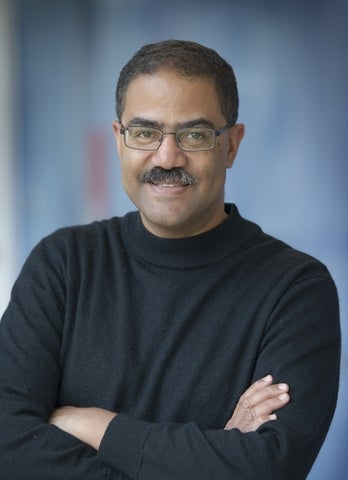
Dr. Trevor Charles
Professor, Department of Biology, Faculty of Science
Professor Trevor Charles is a microbiologist with expertise in bacterial molecular genetics. His research group studies the mechanisms of gene regulatory circuits that control the interactions of Rhizobiales bacteria such as Sinorhizobium meliloti with their eukaryal hosts. The group also develops methods for functional metagenomics using alternate surrogate hosts, and employs these methods to isolate novel genes with interesting functions from microbial community genomic libraries. Current research emphasis is on functional metagenomics, bioplastics and bacterial genome engineering.

Dr. Jonathan Fugelsang
Professor, Department of Psychology, Faculty of Arts
Jonathan Fugelsang’s research spans several topics in psychology, though his primary focus is on higher-level cognition. Recently, Fugelsang’s lab’s research has predominantly focused on the interplay between intuitive and analytic processes supporting complex Reasoning and Decision Making. These decisions may involve analogical, deductive, or probabilistic information. The lab has also extended its lines of inquiry to look at the role of intuitive and analytic processes in real-world domains, such as creativity, moral judgments and one’s susceptibility to misinformation.

Dr. Chris Houser
Dean of Science and Professor, Earth and Environmental Sciences, Faculty of Science
Dr. Chris Houser is the Dean of Science and Professor in the Department of Earth and Environmental Sciences at the University of Waterloo. His research examines the response and recovery of coastal barriers to extreme storms and changes in wave activity with a changing climate. He also conducts research on beach safety at the interface of the social sciences and psychology to reduce the number of rescues and drownings.

Dr. Lili Liu
Dean of the Faculty of Health and Professor, School of Public Health Sciences
Liu advances health-care technology through her leadership roles in research, administration, service and mentoring students and post-docs. Her research program examines acceptance and adoption of technologies by older adults, their care partners, health care professionals, and unlicensed care personnel. Her team focuses on approaches to inform and implement policies that create safe environments for older adults with dementia at risk of going missing.

Dr. Kate Mercer
Engineering & Research Services Librarian, Adjunct Assistant Professor Systems Design Engineering
Dr. Kate Mercer graduated with a Master of Information from the University of Toronto, and a PhD in Pharmacy from the University of Waterloo, focusing on communicating health information. Kate is the liaison librarian for Systems Design Engineering and Biomedical Engineering at the University of Waterloo where her job includes collaborating with faculty, staff, and students to effectively provide instruction and support and conduct research. At the University of Waterloo, Kate works on strategies related to information and misinformation, understanding the research landscape, and building innovative partnerships that span disciplines.
Kate is passionate about understanding how health information and technology interact, how people are accessing, understanding, and disseminating information, and how to better support students through their undergraduate degrees and beyond. Kate also researches in how engineering and science students navigate information seeking, and how to understand how framing critical appraisal can facilitate both learning and professional practice in the real world. Kate publishes on a range of topics including information literacy, misinformation, scientific communication, artificial intelligence, and empathy in engineering teaching and learning.

Dr. Samantha Meyer
Associate Professor; Associate Director, Graduate Studies, School of Public Health Sciences
Dr. Samantha Meyer is an applied social scientist with expertise in social theory and a variety of methodological approaches used to inform research investigating critical and timely public health problems. Meyer’s specific research focus is understanding the complex social and structural factors that shape population health, and the health of vulnerable populations specifically. The concept of trust as it relates to health communication and acceptance of health promotion efforts is central to her work. Theoretically, she has identified and operationalised semantic distinctions between trust and the related concepts of dependence and obligation that are critical for research investigating and measuring trust. Her empirical research demonstrates the role of trust in the acceptance of health promotion efforts (e.g., vaccine uptake). She completed her graduate and early career research in Australia before returning to Canada as an Associate Professor in the School of Public Health Sciences, University of Waterloo.

Dr. Plinio Morita
Associate Professor, School of Public Health Sciences, Faculty of Health
As the Director of the Ubiquitous Health Technology Lab (UbiLab), Plinio Morita has focused his research on population level surveillance, remote patient monitoring (RPM), and personalized medicine technologies to be used to prevent unnecessary visits to hospitals and drive our healthcare system toward community care and telehealth. The current state of the technology limits how clinicians can use data collected from RPM and IoT systems as the quality, frequency, and reliability of the data is normally lower than clinical standards. The UbiLab expands the area of population-level surveillance, remote patient monitoring, and precision medicine by developing algorithms and systems of systems that combine data from mHealth and IoT sensor technology that can satisfy clinical standards while also providing meaningful use for the patient to the ocean of data currently collected by these smart technologies. In a nutshell, Morita’s research interests are in the areas of population-level surveillance using IoT data, mHealth and wearable technology design, ubiquitous sensors for smart homes, usage data and health data analytics, precision medicine, and technology for aging. All technologies that will help us live longer independent lives.
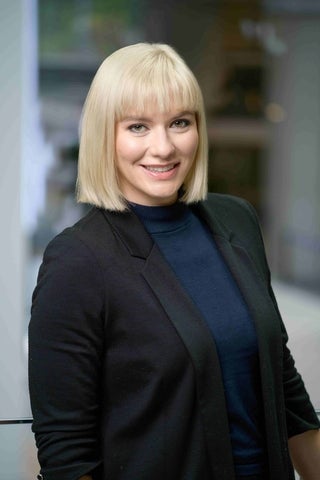
Leah Morris
Senior Director, Velocity Program at Radical Ventures
Leah is a Senior Director at Radical Ventures – a venture capital firm investing in entrepreneurs applying deep technology to transform massive industries. Leah focuses on Radical’s post-investment Velocity Program, research network, and responsible AI efforts. She co-developed the open-source Responsible AI for Startups (RAIS) framework for early-stage investors with the Vector Institute for Artificial Intelligence.
Prior to Radical, Leah researched the economic principles of artificial intelligence with Professor Avi Goldfarb at the University of Toronto. Previously, she worked in policy with the United Nations at the International Organization for Migration. Leah has also worked in global health, education, and security with NGOs in the Latin America and Caribbean region and South Africa. She received a fellowship grant from the Open Society Foundation and was awarded a Clarkson Laureateship for public service by The Right Honourable Adrienne Clarkson.
Leah holds an MBA from The University of Toronto, a Master of Global Affairs from the Munk School of Global Affairs and Public Policy, and a Bachelor's in both International Development Studies (IDS) and Environment, Sustainability, and Society (ESS) from the University of King's College.

Dr. Beth Sandore Namachchivaya
University Librarian, University of Waterloo
As university librarian, Beth leads a talented group of over 130 staff who provide library information services at Canada’s most innovative university. Prior to her 2017 appointment at Waterloo, she was a university administrator and faculty member at the University of Illinois at Urbana-Champaign. Her research addresses the intersection of human expertise and technological advancements within research libraries. She works on advancing enduring, equitable access to scholarship through the Canadian Association of Research Libraries (CARL), the Association of Research Libraries (ARL), and collaboratives like the Ontario Council of University Libraries (OCUL), and the HathiTrust Digital Library—member-owned and -driven services that leverage the power and specialized technologies of many libraries innovating together, on behalf of many scholars.

Savannah Sloat
Manager, Science Indigenous Initiatives
Savannah (they/she) is a member of Six Nations of the Grand River, Tuscarora Nation, and is the Manager, Science Indigenous Initiatives within the University of Waterloo’s Faculty of Science. Savannah has worked in higher education for over ten years with experience in orientation and transition programming, student support, and crisis intervention roles. Savannah plays a key role in identifying systemic and systematic changes that move beyond the TRC Calls to Action to create a more inclusive environment for Indigenous knowledge and learning within the Faculty of Science.
Savannah's graduate thesis and academic research focused on the identity politics of mixed and self-identified Indigenous peoples under the Indian Act. Savannah is passionate about culture, identity, and creating communities of care within education.
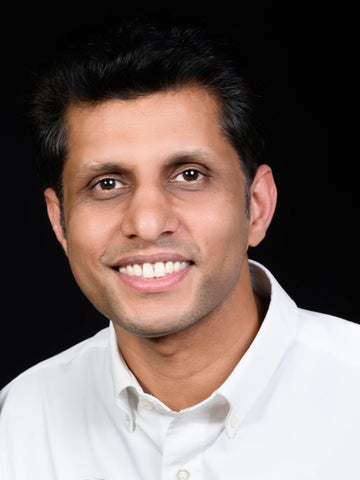
Dr. Makhan Virdi
Lead Research Scientist SSAI and Science Advisor, NASA Atmospheric Science Data Center
Dr. Makhan Virdi, a leading earth scientist, geoinformatics expert, and artificial intelligence (AI) specialist, is passionate about exploring emerging science and technology. His interests extend to the societal perception and implications of these advancements and promoting evidence-based decision-making. He currently holds the position of Science Advisor for the Atmospheric Science Data Center (ASDC) at NASA Langley Research Center, where he provides scientific direction, programmatic support, and facilitates collaboration between NASA's atmospheric science missions, ASDC, and the broader scientific community.
Renowned for his efforts to make earth science data findable, accessible, interoperable, and reusable (FAIR), Dr. Virdi led a team that earned a national award from the US Federal Geographic Data Committee (FGDC). His research interests encompass a broad spectrum of topics, including the application of AI in earth science, land use monitoring, hydrology, climate extremes, agriculture, and atmospheric science.
As a Lead Research Scientist at Science Systems and Applications, Inc. (SSAI), Dr. Virdi leads development of AI-based frameworks for scientific analysis, and capacity building through his mentorship and curriculum development contributions to the Data Science and AI Lab (DSAIL), Software Carpentry, and NASA-Openscapes initiatives.
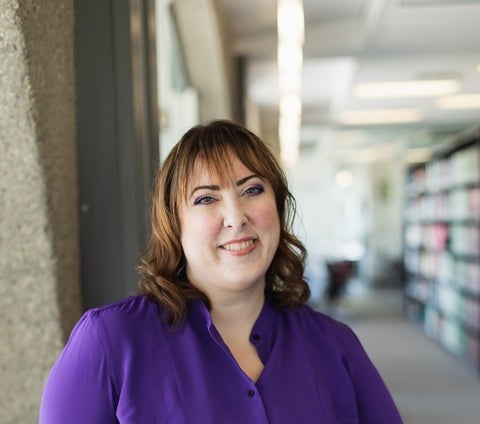
Dr. Kari D. Weaver
Learning, Teaching, and Instructional Design Librarian
Dr. Kari D. Weaver (she/her) is an impassioned library educator who believes learning with information is essential to every aspect of our modern world. At the University of Waterloo, this perspective has shaped her leadership of information literacy and digital learning in the Libraries since 2017. As higher education and academic libraries have sought to adapt to rapid change engendered by artificial intelligence, she has become a leader in this work and was appointed to the new position of Program Manager, Artificial Intelligence and Machine Learning at the Ontario Council of University Libraries (OCUL). Dr. Weaver joins OCUL on secondment from her permanent role as Learning, Teaching, and Instructional Design Librarian at the University of Waterloo Libraries until April 2027.
Dr. Weaver’s extensive research background centers on the intersection of human information behavior and pedagogy. She publishes on a wide range of topics including information literacy, academic integrity, misinformation, scientific communication, educational research methods, online learning, and digital accessibility. Much of her recent work has focused on artificial intelligence citation, attribution, and disclosure practices, leading to the development of the widely adopted Artificial Intelligence Disclosure (AID) Framework. She is a member of the Canadian Association of Professional Academic Librarians Research and Scholarship Committee.
Past Executive Committee Members
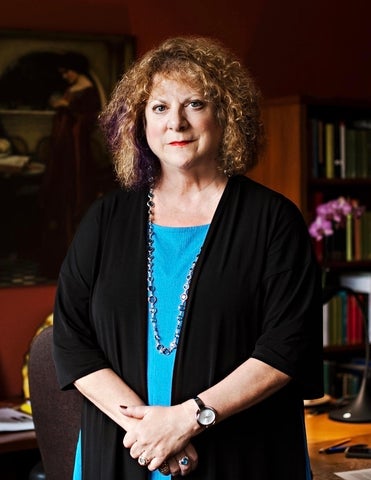
Dr. Sheila Ager
Former Dean of Arts and Professor of Classical Studies, Faculty of Arts
A faculty member at Waterloo since 1987, Dr. Ager is a full professor in the Department of Classical Studies and served as Dean of Arts from 2019-2024. Her substantial record of leadership includes interim chair of Fine Arts, chair of Classical Studies (2009-2017), Associate Dean of Arts, Undergraduate Studies (2001-2007), two terms as a member of Senate, one term as a member of the Board of Governors, and director of the University’s Academic Leadership Program (2016-2019). Dr. Ager completed her BA and MA degrees at Queen’s University and earned her doctorate from the University of British Columbia. She is a scholar of Greek history, specializing in the Hellenistic age – the years between the death of Alexander the Great in 323 BC and the suicide of Cleopatra in 30 BC. Often engaging interdisciplinary approaches, much of her research has centered on interstate relations in this period, including peaceful dispute resolution.

Dr. Catherine Burns
Professor, Associate Vice President, Health Initiatives, Canada Research Chair in Human Factors in Healthcare Systems
Catherine M. Burns is Professor in Systems Design Engineering at the University of Waterloo, Canada and Associate Vice President, Health Initiatives at the Office of Research at the University of Waterloo. In her past administrative roles she has been engaged with institutional and tri agency funding programs, research partnerships, Waterloo’s equity in research action plan, and research computing. Catherine was the founder of the Centre for Bioengineering and Biotechnology at Waterloo and led the centre from a faculty to an institutional centre over 8 years. In 2020 she chaired Waterloo’s Health Initiatives Task force to develop a health strategy in response to Waterloo’s 2025 Strategic Plan. In her role as AVP, Health Initiatives she is responsible for advancing Waterloo research in health and health technology. Catherine holds a Tier 1 Canada Research Chair in Human Factors and Healthcare Systems, has contributed over 300 publications and is the co-author of seven books and the PI on an NSERC CREATE Training program in biomedical technology and entrepreneurship which has trained over 40 graduate students from various faculties across campus.
Catherine is well known for her work in Cognitive Work Analysis, Ecological Interface Design and the development of decision support systems. She is a Fellow of the Human Factors and Ergonomics Society. Catherine’s recent research projects have been exploring the design of early warning systems for the detection of sepsis, the design of predictive diagnostic systems for glaucoma detection, and clinician driven tools for dementia assessment.

Dr. Christine Dow
Associate Professor, Department of Geography and Environmental Management, Faculty of Environment
Christine Dow is a Canada Research Chair (Tier 2) in Glacier Hydrology and Ice Dynamics. Dow joined the Department of Geography and Environmental Management following a postdoctoral fellowship at NASA Goddard Space Flight Center, and is cross-appointed in the Department of Applied Mathematics. Her research interests are focused on the development of hydrological networks underneath ice sheets and glaciers, and the impact of this on ice dynamics on a variety of spatial and temporal scales. She analyses these systems using a combination of numerical modelling methods and data integration. She has field sites at Nansen Ice Shelf in Antarctica and the St. Elias Mountains of the Yukon, where she runs a glacial borehole drilling and ice geophysics programme. Her research interests aim to answer questions about the future of glaciers and ice sheets in our changing climate and contribute to predictions of ice-climate feedbacks. She is a Fellow of the Royal Canadian Geographic Society.

Dr. Carla Fehr
Associate Professor, Department of Philosophy, Faculty of Arts
Carla Fehr’s research explores the social nature of science and technology. She investigates how a group’s culture—its values, practices, and structures—influences the knowledge it produces. Fehr wants to know how scientific values such as objectivity and creativity, and ethical values such as justice, equity, and respect support and reinforce each other to help people meet a wide range of practical and epistemic goals. Using an intersectional approach to cases ranging from primatology to AI, she explores how structural injustice, exploitation, and objectification harm scientific and technological research. Fehr is also interested in how love can make science better. For fun, she thinks about how the relationships between humans and dogs support excellence in canine cognition research.

Dr. Kelly Grindrod
Associate Professor, School of Pharmacy
Kelly Grindrod's is Ontario College of Pharmacists Professor in Pharmacy Innovation. Grindrod's research goal is to use the best available evidence to guide the design and implementation of digital technologies in healthcare. Specifically, her research focuses on the potential for emerging technologies to improve medication use in the community, including smart phones and web-based technology. In particular, she is interested in design needs of non-traditional technology users including late adopters, older adults and vulnerable populations.

Dr. Andreas Laupacis, MD, MSc, OC
Senior Deputy Editor of CMAJ (Canadian Medical Association Journal) and a specialist in internal medicine
He has published over 370 peer-reviewed articles covering a variety of topics in clinical epidemiology, health services research, health technology assessment and health policy. The founder of web sites www.healthydebate.ca and www.facesofhealthcare.ca which focus on health policy and patient and family experiences in health care, he previously held a Canada Research Chair in Health Policy and Citizen Engagement.
Dr. Laupacis is a Professor at the University of Toronto in the Faculty of Medicine and the Institute of Health Policy, Management and Evaluation. Before joining CMAJ on October 2019, Dr. Laupacis practiced palliative care at St. Michael’s Hospital in Toronto and was the Lead, Patient Involvement, Department of Medicine, University of Toronto. He has also held faculty positions with Western University, the University of Ottawa and has served as CEO of ICES (formerly the Institute for Clinical Evaluative Sciences).
He has served on numerous academic and governmental advisory committees, most recently as board chair for Health Quality Ontario. Dr. Laupacis has been awarded the Justice Emmett Hall Laureate (2010), the Health Services Research Advancement Award from the Canadian Health Services Research Foundation (2011), the CIHR’s Barer-Flood Prize in Health Services and Policy Research (2013), the University of Toronto President’s Impact Award (2018), the Carolyn Tuohy Impact on Public Policy Award, University of Toronto (2018) and the FNG Starr Award of the Canadian Medical Association (2018). He is a Fellow of the Royal Society of Canada (2015) and Officer of the Order of Canada (2022).

Dr. Anita Layton
Professor, Department of Applied Mathematics, Faculty of Math
Anita Layton is the Canada 150 Research Chair in Mathematical Biology and Medicine, and Professor of Applied Mathematics, Computer Science, Pharmacy and Biology at the University of Waterloo. She leads a diverse and interdisciplinary team of researchers who use computational modeling tools to better understand aspects of health and disease. Mathematics is their microscope! The Layton group collaborates with physiologists, biomedical engineers, and clinicians to formulate detailed models of cellular and organ function. Model simulations and predictions are used to answer questions such as: How should anti-hypertensive drugs be prescribed differently for men and women? Is it better to take one's medication in the morning or at night (or does it matter), given the interactions between the drug and our body's circadian rhythms? Professor Layton is a Fellow of the Association for Women in Mathematics (2022), winner of the Krieger-Nelson Prize (2021), and winner of Canada’s Most Powerful Women: Top 100 Award (2021). She is an Associate Editor of SIAM Review Book Section, an Associate Editor of SIAM Journal on Applied Dynamical Systems, a Section Editor (AI/Machine Learning) of Hypertension, and an Associate Editor of Maple Transactions. Additionally, she serves as the Associate Dean, Research and International, for the Faculty of Mathematics, and chairs the Research Equity, Diversity and Inclusion Council at the University of Waterloo.

Dr. Ashley Rose Mehlenbacher
Associate Professor, Department of English Language and Literature, Faculty of Arts
Ashley Rose Mehlenbacher is a Canada Research Chair in Science, Health, and Technology Communication and Associate Professor at the University of Waterloo. Mehlenbacher is a rhetorical scholar who joined the University of Waterloo in 2015, before which she was an Assistant Professor at Purdue University, from 2014-2015. Her research investigates how genres of scientific and science communications emerge and evolve, how aspects of expertise and ethos interact, and the ethical aspects of specialist/non-specialist relationality in the communication of complex information. Mehlenbacher runs the CFI-funded Demos Lab, which currently focuses primarily on issues of climate communication. She is the author of On Expertise: Cultivating Character, Goodwill, and Practical Wisdom (Penn State University Press, 2022) and Science Communication Online: Engaging Experts and Publics on the Internet (The Ohio State University Press, 2019), and coeditor, with Carolyn R. Miller, of Emerging Genres in New Media Environments (Palgrave, 2017).

Dr. Anindya Sen
Professor, Department of Economics, Faculty of Arts
Anindya Sen is deeply interested in understanding the effects of government intervention and policy on the efficiency of markets and overall societal welfare. He has attempted to evaluate the effects of market structure and competition on retail prices in the gasoline and electricity markets. Sen has published research has also focused on assessing the empirical impacts of a wide variety of policies, such as stricter impaired driving laws, mandatory seatbelt legislation, cigarette taxes, and the minimum wage. He is currently studying the effects of deregulating retail alcohol and marijuana markets. Sen believes strongly in the necessity of sharing and communicating research findings with policymakers and the public.